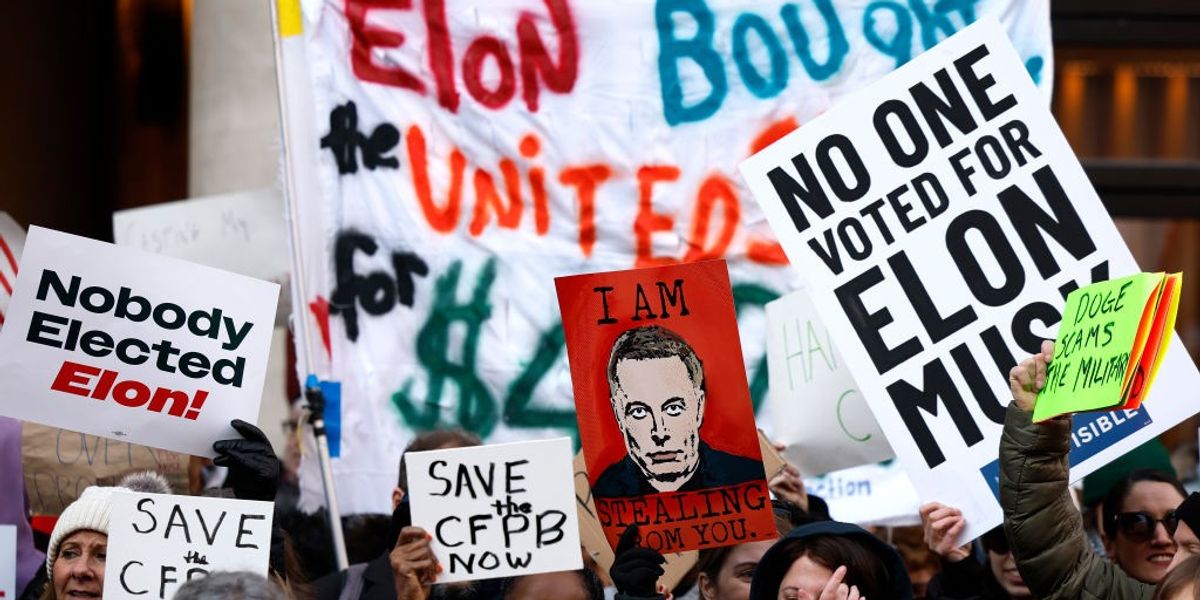Economics Professor Herman Daly of the University of Maryland once noted that the most formidable problem in our society is the judicious sharing of its resources. This sharing is an ethical problem that demands solution. In this context of judicious sharing, Daly's view (and my own) is that - while people are not created equally- the Earth's resources exist to be shared equally. Indeed, the Utilitarian economist Jeremy Bentham once noted that the happiness of a given society is maximized when its utilities are maximized. That means ALL of its people, not just a few at the top, able to exercise their talents to their maximum potential. In the words of Bentham:
"The more nearly the actual proportion approaches to equality, the greater will be the mass of happiness'
Because resources, i.e. money, health care, property, ensure one's talents can realize the choices to be used in the most able ways. Then, Bentham argued, the greatest happiness is assured because the distribution of the resources to support the development of talents are nearly equal. If 10 million men or women wish to become fulfilled artists or poets, then they can, or if they wish to be writers, or builders.
No one "owns" the Earth's resources though multi-billionaire Elon Musk comes close to believing he does, given he's worth $378 billion. The problem is that such magnitude of wealth and control of resources distorts and degrades thinking, making one believe he is more powerful in ownership terms than he is. Musk's exercise of his DOGE wrecking ball mechanism to subdue and destroy the federal bureaucracy is an example of this.
Musk's wealth and in particular since he's used it to leverage power to act on Trump's behalf, has left him shortsighted in terms of how he's now diminishing the lives of millions of other humans who share this planet. Just the elimination of U.S.A.I.D. which Musk - in his warped billionaire mind calls "evil" - may well lead to the deaths of over 8 million arising from famine in sub-Sahara Africa in the coming months.

A classic coup d’état has guns. Uniformed men run wild seizing government agencies and claiming control over what government does and who government serves.
But in our new cyber age, the Yale historian Timothy Snyder reflected this past week, a coup can unfold without any armed overthrow. We can have “a couple dozen young men go from government office to government office, dressed in civilian clothes and armed only with zip drives.”
These young men, operating upon “vague references to orders from on high,” can gain access to basic computer systems and “proceed to grant their Supreme Leader” effective power over just about everything that government does.
The historian Snyder is, of course, describing America’s current reality. He’s calling this reality a coup — and so are countless other defenders of America’s democratic faith.

As President Donald Trump tests the limits of manufactured crisis and chaos, he claims a mandate from the American people. But his razor-thin electoral victory tells a different story. Voters didn’t ask for an illegal takeover of government offices, a freezing of funds for needed services, sending our immigrant neighbors to camps at Guantanamo, or aggression against our allies. Yes, we wanted change. But as multiple polls show, a clear majority were seeking relief from unaffordable prices, real economic hardship, and inequality, not an authoritarian takeover.
The Trump administration’s initial barrage of orders will make life worse for the most vulnerable — especially immigrants and transgender people — but soon enough for everyone else in the non-billionaire community. The rapid roll out of these policies is right out of the fascist playbook, designed to overwhelm and demobilize the public.
How can we regain our footing and our strength? We need to not only stop the roll out of policies that threaten to make life worse for ordinary people, but we need to keep focusing on the changes we the people are actually looking for. We need to demand the changes we voted for. If we do that, we can stay grounded during the turmoil, resist the chaos, and build the power to create an authentically populist future.

On February 10, the Electronic Privacy Information Center, or EPIC, filed suit for damages against the Trump-Musk-DOGE cartel. The lawsuit, which EPIC filed before the U.S. District Court for the Eastern District of Virginia, calls for damages on behalf of tens of millions of government workers and Americans resulting from the administration’s illegal breach of personal privacy and its threat to national security.
“These basic security failures have resulted in the unlawful disclosure of personal data—including social security numbers and tax information,” reads the complaint.
EPIC is claiming the data incursion—among many other violations—is illegal under the Privacy Act of 1974. “Plaintiffs have a constitutional right to the privacy of their information… Defendants have violated and continue to violate that right by unlawfully disclosing extremely personal information about plaintiffs and millions of others to unchecked actors in violation of law,” the complaint states.

Donald Trump, his shadow president Elon Musk, and the so-called Department of Government Efficiency are waging a highly illegal rampage through the federal budget. Among the first wave of intended victims are thousands of scientists across the country who depend on federal grants and loans to fuel their research. The administration is trying to unilaterally slash billions of dollars from the National Institutes of Health (NIH) and the National Science Foundation (NSF). To defend this, Musk claims it's a "ripoff" when grant funding goes to pay for salaries, lab space and equipment, even though no one can conduct scientific research without these baseline necessities.
"Trump and King Musk framed this as a shot at baddies like Harvard and Yale, but this absolutely destroys public schools and every state has those and they all are doing scientific research," historian Erik Loomis explained at Lawyers, Guns and Money. Even Republican senators are having trouble concealing their panic, as public universities are economic centers in many red states.

A new poll from CBS News finds that most Americans agree with Trump’s policies of gutting protections for women and Black people while arresting and deporting Brown people here without documentation. Roughly two-thirds of respondents called him “tough,” “energetic,” “focused” and “effective.”
They think they are free.
White people approving of Trump’s actions believe marginalizing minorities, gutting the federal government, and attacking (and suing) media outlets and reporters will help them, and some of them probably will. A return of white supremacy and the marginalization of women in the workplace and politics, for example, may produce some small benefits for a few white men.
But there’s a price to be paid in what Americans like to refer to as freedom.
But there’s a price to be paid in what Americans like to refer to as freedom.
For Trump to continue to reverse over 100 years of progress on civil, women’s, and workers’ rights, he’s eventually going to confront pushback from those very groups. He’s going to have to deny working people their right to organize into unions. He’s going to have to restrict the ability of poor and middle-class people to rise above their economic stations through education.
All of these things will eventually harm the middle class, and he’s already started on every one of them.
But it’s even worse than that: as our freedoms are taken away, and our government is turned into a one-party state, governance that assists the majority of the people begins to vanish. The freedom to speak out goes away. Eventually, society turns cold, as Trump’s authoritarianism hardens the national Zeitgeist.


No comments:
Post a Comment